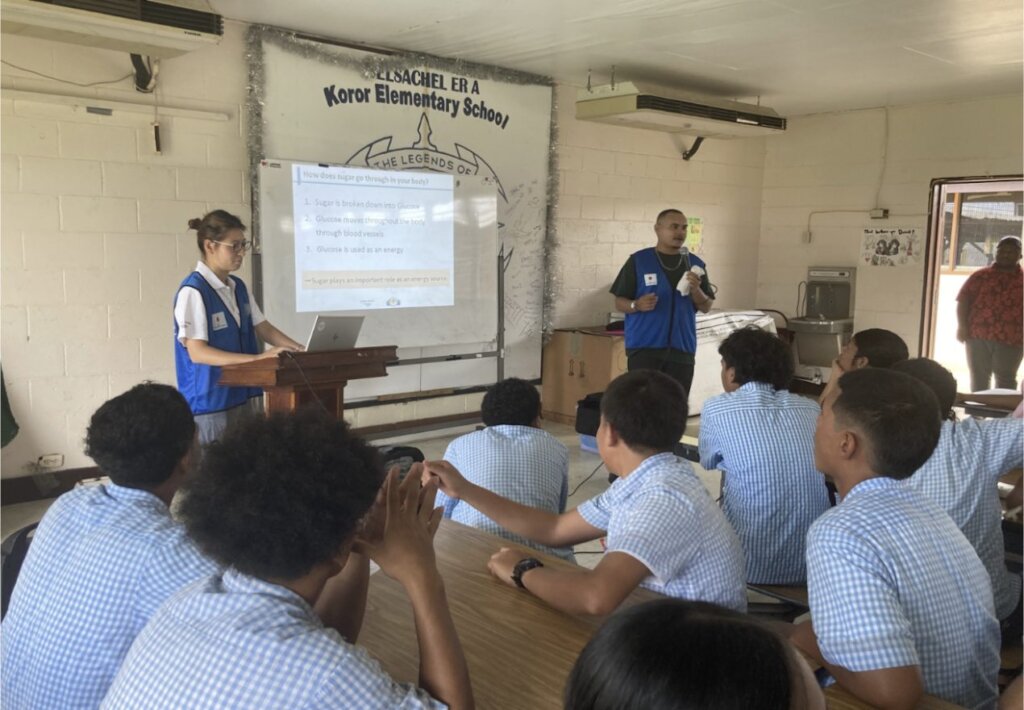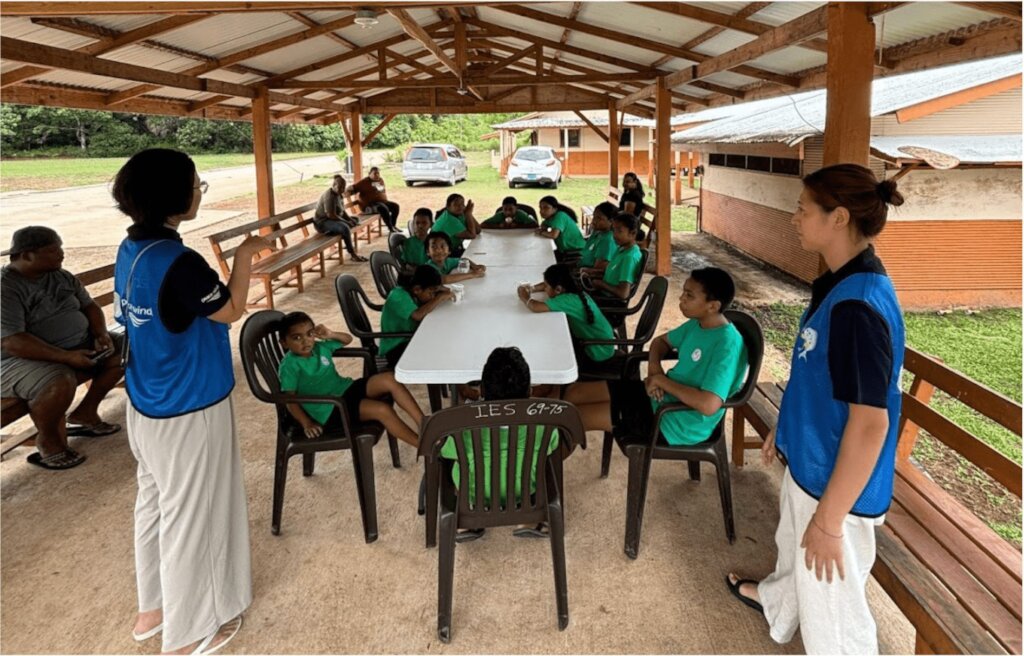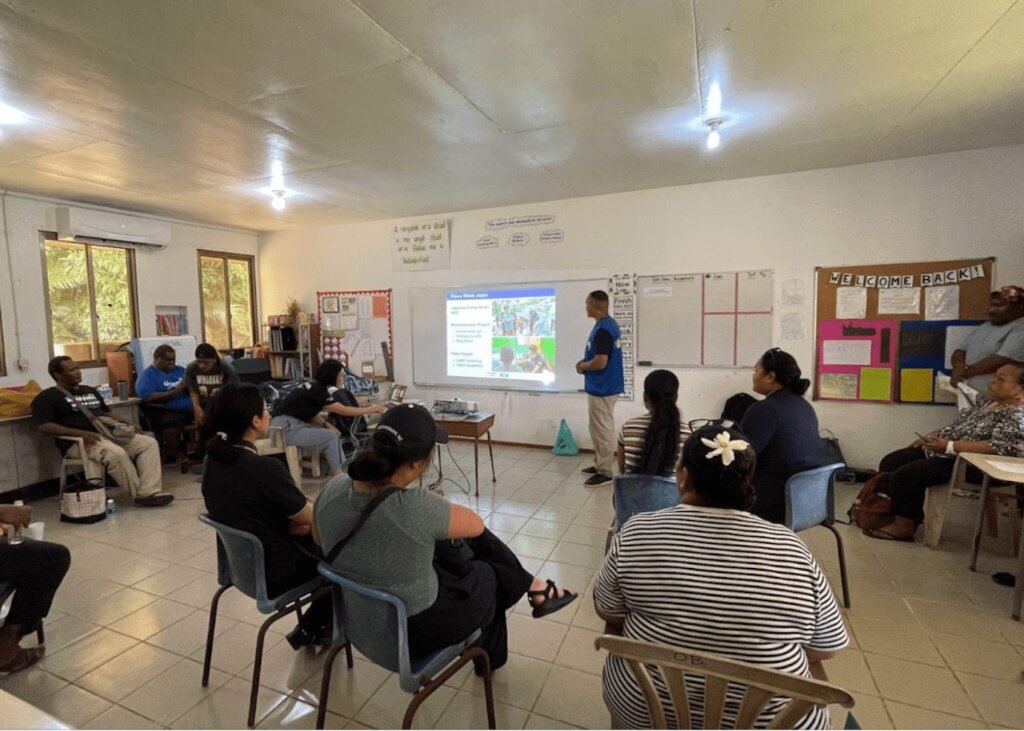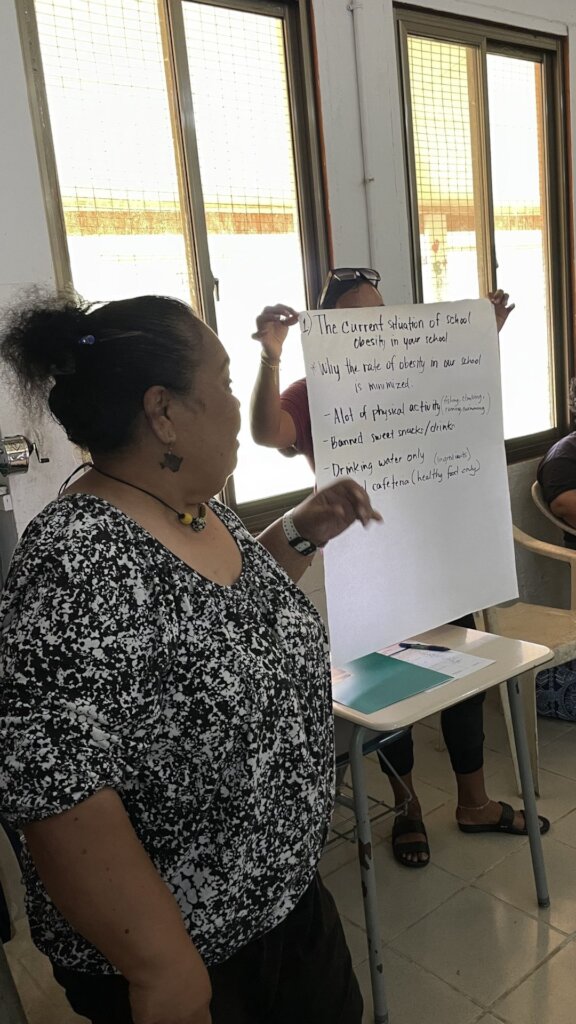By Sarah Maraschky | Communications Associate
More than 72% of adults in Palau are considered obese, and non-communicable diseases (NCDs) including high blood pressure and cardiovascular disease have risen to account for more than 70% of deaths in the country. One growing factor is Palau’s increased consumption of sweetened beverages and “Western-style” foods in recent years. According to a WHO survey, three out of four adults drink at least one sugary drink every single day.
Peace Winds is working with Palau’s Ministry of Health to visit schools throughout the country and raise awareness of NCD prevention among children and teachers. Part of the prevention process involves regular health checks in order to detect concerns early, treat them, and prevent the disease or disability from becoming severe. This is known as secondary prevention.
In addition to secondary prevention, Peace Winds is helping children learn primary prevention, which involves making lifestyle changes to help prevent NCDs in the first place. Health education is an important piece of the puzzle, and school is a great place for children to learn healthy habits that carry into adulthood.
The main question Peace Winds posed in its recent sessions for students was “How much sugar is in your drink?” Health instructors started out by explaining how sugar works in the body, as well as the NCDs that can be associated with excessive sugar intake. After hearing about how sugar interacts with health, children saw a visual demonstration of how much sugar is in some of the most popular drinks. Many students were surprised, saying they had no idea how much sugar was in their favorite juice.
In June of this year, Peace Winds also held a workshop for teachers, where they discussed childhood obesity and did group activities. Teachers said that the workshop deepened their understanding of obesity prevention for students, strengthened their ability to work with other teachers, and will unify health efforts across the school more broadly. The conversations with teachers also raised new issues about a lack of uniform school policies throughout Palau, meaning that things like the amount of snacks and time for exercise vary from school to school.
Peace Winds believes in supporting the health of young people who will be the future of Palau, and our teams will continue working to prevent NCDs through health checks and educational activities. Future programs will include visits to even more schools and awareness activities that incorporate additional health-related themes.
This project is being carried out with the support of Japan’s Ministry of Foreign Affairs as well as thanks to contributions from our generous donors. New donations will support ongoing programs for health checks and education throughout Palau.
Project reports on GlobalGiving are posted directly to globalgiving.org by Project Leaders as they are completed, generally every 3-4 months. To protect the integrity of these documents, GlobalGiving does not alter them; therefore you may find some language or formatting issues.
If you donate to this project or have donated to this project, you can receive an email when this project posts a report. You can also subscribe for reports without donating.
Support this important cause by creating a personalized fundraising page.
Start a Fundraiser


